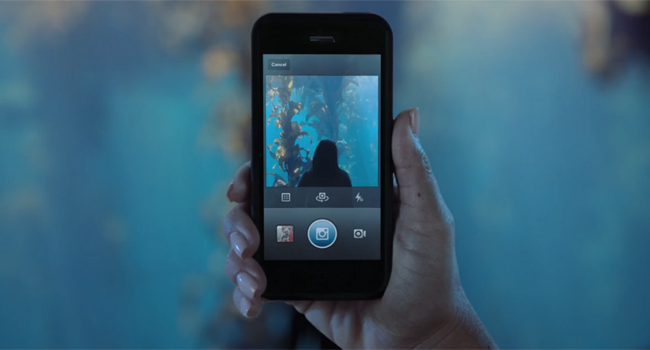Donald Trump’s call for Netflix to remove board member Susan Rice has intensified the Paramount saga, pushing the streaming wars into a political confrontation.
Beyond selfies: the ultimate guide to making your Instagram photos suck less


Before January this year I had absolutely no interest in photography. I was happy owning (and shooting on) a Canon 5DMKII with no other intention but to use it for filming beautiful footage and telling stories using motion. But then at the end of December 2011 I downloaded an app called Instagram and it all changed…
What started off as a simple experimentation on a little iPhone app quickly developed into an addiction of always looking for the next shot. I found myself appreciating the wonders of telling a story through a single frame. Not to mention how the accumulated time of taking photos began aiding my abilities with my films. I started composing my shots better, I recognized natural lighting (of which I am a huge fan) in a very different way and I thought more about subject matter before I started shooting. If I think back, it seems pretty ridiculous how using Instagram has brought me to a point where it’s actually started improving my professional skills.
Many people start with posting photos on Instagram of their food, cats, breakfast and the ever famous “I see myself in the mirror selfie” (unless you’re Justin Bieber with over 11-million followers, no one cares about your selfies). What this has done is cause the general audience to develop a great misconception of Instagram and its content. They miss out on what the true culture of Instagram is and how it’s made way for so many good things.
So how do you start venturing past being just an Instagram user and into the space of beautiful mobile photography? Here are a few guidelines that could help your Instagram photos suck less:
Shoot and edit photos in third-party apps
A common thread that runs through bad photos on Instagram is that they’re shot, filtered and posted in Instagram. The app’s filters are great, but only under the right conditions.
There are two categories here and I’ll list a few favourites:
Shooting apps:
- Native camera (iOS + Android)
Using your native phone camera to shoot is probably the first thing everyone should learn. Rather take a fresh shot and then import it into Instagram — that way you’ll always have the original photo. - Camera+ (iOS)
Camera+ takes your iPhone camera to another level: it gives you unique features like stabilization, a built-in spirit level, a timer and the ability to do burst shots. It’s one of the best apps to use when you’re shooting solo, because if you want to take a shot of yourself standing in front of a sunset like @unclescrooch sometimes does, then you’re going to need an app that has a self-timer. - TrueHDR, Pro HDR (iOS) & HDR Camera (Android)
If you’ve ever wanted to get more details in those ever annoying high contrast photos, then you’ll probably love the HDR functions on cellphones. HDR stands for “High Dynamic Range” and basically exposes the same image twice with different exposures so you can capture a shot that’s truer to what the human eye sees (i.e. being able to see details in shadows or blown out areas). Apart from many of the native apps that have built in HDR functions, these apps I’ve mentioned do it the more “traditional” way. Remember to keep still while shooting the different exposures, if you aren’t the most stable individual you can use a tripod or take some Ritalin just like a sniper. - AvgCamPro (iOS), SlowShutter (iOS) & Camera FV-5 Lite (Android), Samsung’s Native “Light Trace” Mode
If you’ve ever shot a slow shutter or long exposure shot on a DSLR you’ll find that you might miss the awesome shots with smooth waves or milky looking clouds. Well these apps helps you do exactly that — they give you added functionality that basically mimics long exposure on a DSLR. One tip though, get a phone clamp and a tripod.
Editing apps:
- Snapseed (iOS & Android)
This app is awesome. It has simple intuitive functionality and is probably one of the most widely used apps among Instagramers. It gives you the ability to adjust things like brightness, contrast, saturation, colour temperature, straightening an image, cropping, etc. Sometimes that quick tweak on an image just adds something to what was an average photo. - VSCO Cam (iOS & coming to Android soon)
VSCO (Visual Supply CO.) is an app that contains a whole bunch of awesome image presets. It also includes the functionality to do fine tuning on an image before you post it. Apart from having an app, VSCO also do an awesome selection of Film Presets that are available for editing DSLR shots.
What story do you want to tell?
Anything and everything you post should always go further than just posting a mundane shot of your breakfast, although food shots are good when they’re done tastefully (pun intended). Each image can tell a story, and if that image invokes an emotional response, even better. A great example of this is @ruddyroye who takes portraits of people in Brooklyn and includes their stories in the caption when he posts the image.
Learn composition and light.
Firstly, remember you’re shooting for a square. Secondly, the best way to take a better photo is to know what to look for. A perfect shot is really the culmination of composition and exposure agreeing with other to create a compelling image that could possibly give you an eyegasm.
@thomas_k, a Berlin based Instagramer, loves taking photos of street photography. He always manages to nail composition in such a way that his monochrome images become unique and pleasing to the eye.
@takiti, a Tokyo based Instagramer, understands light and always manages to tweak it just right to get the best exposure in an image.
Be consistent, even if your consistency is continual experimentation.
Many successful Instagram users often have a signature style on the images they post. A beautiful example of this is @levonlock. His signature shines through in the way he edits his shots. His style is consistent and he posts photos that “make every day things look epic.” Find your style and stick with it until you get bored, then change it up and stick with it again, rinse and repeat. There’s nothing more appealing than finding an Instagramer whose gallery comes together like the pieces of a puzzle.
Master your favourite apps
Start shooting with your native phone camera and use a few apps to edit the image before you post it. Speak to any Instagramer and they’ll tell you that they have their go-to apps that they’ll always use. Hunt down an Instagramer who you really love and leave a comment on their shot asking what apps they use — most of the time they’ll reply unless they are too self-consumed with editing the next image they’re going to post.
Get some accessories
Some shots require you to get something a little extra besides just an app. There are some awesome accessories out there that will take your mobile photography to another level. The most common one used is the Olloclip — this is basically a lens for your iPhone that gives you the ability to shoot Fisheye, Wide Angle and Macro shots. Another accessory is a tripod — you can buy little tripods that allow you to use apps that give you unique features. All of these accessories can be bought in online stores like Instageeks, Zavi Traders and Photojojo.
Find a community
Taking photos is always a lot more fun with people who share your passion. There are Instagramers communities all over the world including an active and growing community in South Africa (@igersSouthAfrica). It’s a fun way to learn especially because you get to meet the people who you may follow and discover more great Instagramers.
Shoot first, apologise later
Unless you want to take a photo of a gangster holding a gun like @roywrench did in this shot, be brave and shoot before you think.
Most of the time the best shots are taken in the moment and once you’ve asked for permission that moment is often lost. Because this is mobile photography and not Lomography, you have the leisure to shoot as many photos as you want without worrying too much about it costing you anything. The wonder of having a phone that takes awesome photos is that you always have it on you, and as they say, “The best camera you have is the one you have with you.”
If you’ve read this article and realised that your photos are actually pretty crappy, then you’re off to a good start, because the first step is admitting you have a problem. Don’t let it discourage you, instead allow it to inspire you.
For many, Instagram has not only become a platform that’s made photography more accessible, but it’s also been something that has opened up a world of creativity in ways that many would have never before experienced. I know for myself that it’s positively helped me improve my professional photographs and filmography, but perhaps the right approach is in realizing that Instagram has in fact provided a space for a new art medium to emerge.


